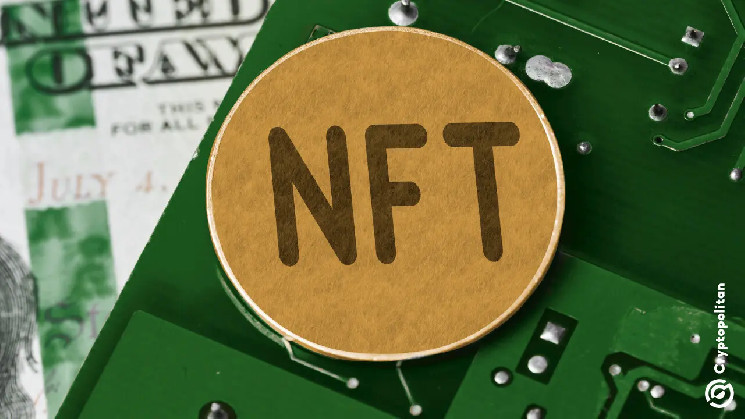The judiciary of Brazil has authorized the use of non-fungal tokens (NFTs) to serve summons to non-mischievous persons in a speeching crypto fraud case. The decision is linked to the bankruptcy case of BWA Brazil, a digital currency investment company accused of fraud with 11,200 bitcoins, which are currently valued at around $ 900 million.
The ruling Comes against the background of a legal plea to stop the status of restrictions on claims with regard to crypto assets that were reportedly purchased with the help of creditors funds. A Trustee appointed by the court that supervised the bankruptcy of BWA Brazil asked permission to serve digital subpoenas via NFTS.
The tokens, which contain legal documents supported by the Brazilian public prosecutor, would be sent to Bitcoin wallet addresses related to the disputed transactions.
Decision of the court accepts The use of NFT summons
In the ruling, the court doubled the need to protect the creditors, stating:
‘CReditors who have suffered the loss of millions of dollars cannot be further damaged by legislative delays in keeping up with technological innovation. That is why I authorize the Trustee appointed by the court to take all the necessary actions to make a report of this interrupted protest [which pauses lawsuit deadlines] Via electronic communication using NFTS. “
The measure is only intended to focus on people whose identities are unknown, but whose bitcoin -blockchain activities can be followed. The bankruptcy item says that the 11,200 BTC was purchased with money from BWA Brazil’s customers before the company went bankrupt. This means that customers can be charged to get their money back.
Four crypto fairs, including Bit Blue, Mercado Bitcoin, Brasiliex and Bitcambio, have received the instructions to inform the wallet owners who are involved in the case by sending copies of the court’s decision and the first legal petition.
Bwa Brazil: what has happened so far
BWA Brazil was founded in 2017 by Paulo Roberto Ramos Bilibio as an investment firm that offers Bitcoin exposure. It attracted customers with promises of fixed monthly returns of 5% on deposits, What economists invented As an unrealistic warranty, given the volatile nature of Bitcoin.
The company collapsed in the beginning of 2020 after freezing recordings and submit For a chapter 15 bankruptcy application, as a result of which investors leave an estimated R $ 300 million in losses (around $ 52.2 million). Authorities later identified BWA as one of the greatest alleged crypto -pyramid schemes of Brazil.
A Brazilian court had BWA go through judicial collection in July 2020. This is a process that helps companies to repay their debts. Less than a year later, however, the court changed his mind and the company declared bankrupt because there was no evidence that it had tried to repay customers.
Bilibio and his business partner, Jessica da Silva Farias, are confronted with chargesr uscustomer funds to buy Bitcoin for the collection of the company. Both both almost stay, and no arrests have been reported or profound observations.
Brazil tighter Restrictions on Crypto -investment for retirement funds
On Monday, in a separate decision of financial policy, described in CMN resolution 5,202/2025, Brazil’s best financial authority imposed new restrictions on Crypto investments for pension funds.
Local News Publications reported That the National Monetary Council (CMN) has excluded closed pension funds, known as Entidades Fechadas de Previdência Complementar (EFPCs), to invest in Bitcoin or other digital assets. The EFPCs manage pension savings for trade union and business employees, who traditionally invest in bonds and shares.
“The resolution also prohibits investments in virtual assets, taking into account their specific investment characteristics and associated risk,” Declared a notification from the Ministry of Finance.
Still Brazilian citizens are apparently not very worried About Crypto instructions. A questionnaire Led by Datafolha and Paradigma Education, commissioned by Hashdex and Coinbase, it turned out that virtual currencies, among more than 2,000 participants, ranked more than 2,000 participants as the fifth most popular investment option of Brazil, with 16% of the Digital Activa respondents.
It was be placedHind traditional choices such as money stored at home (24%) and investment funds (19%) But surpassed Assets such as strange currency, bonds, gold and shares. Savings accounts remained the most preferred investment tool, followed by real estate, which attracted 31% of the respondents.

